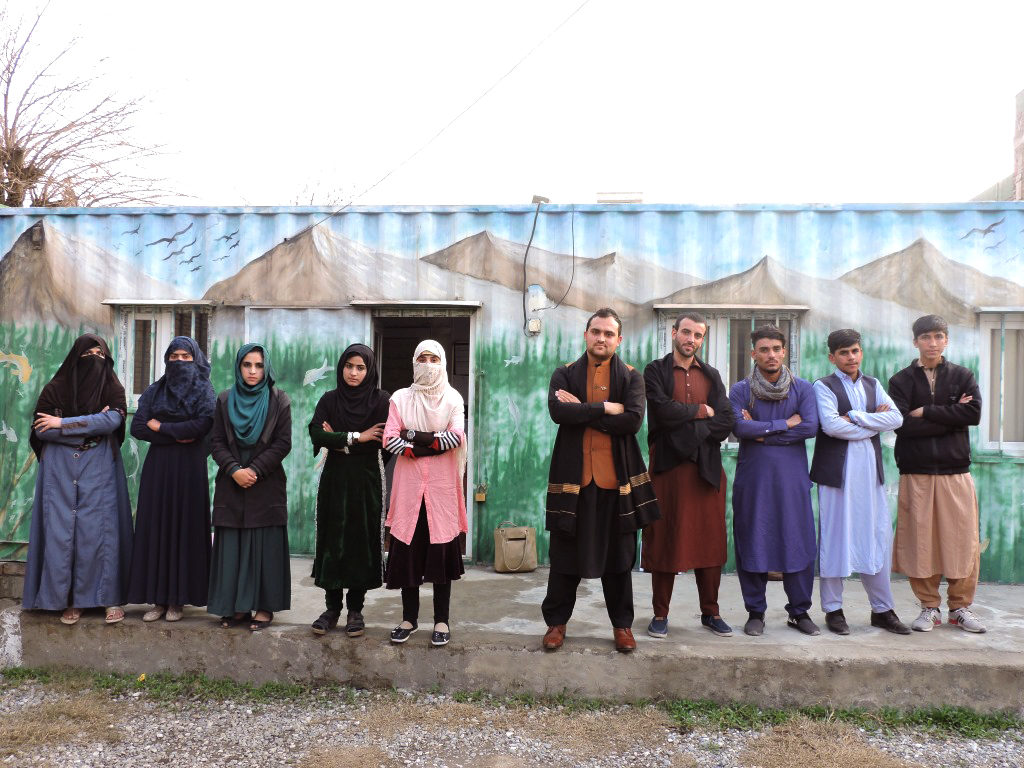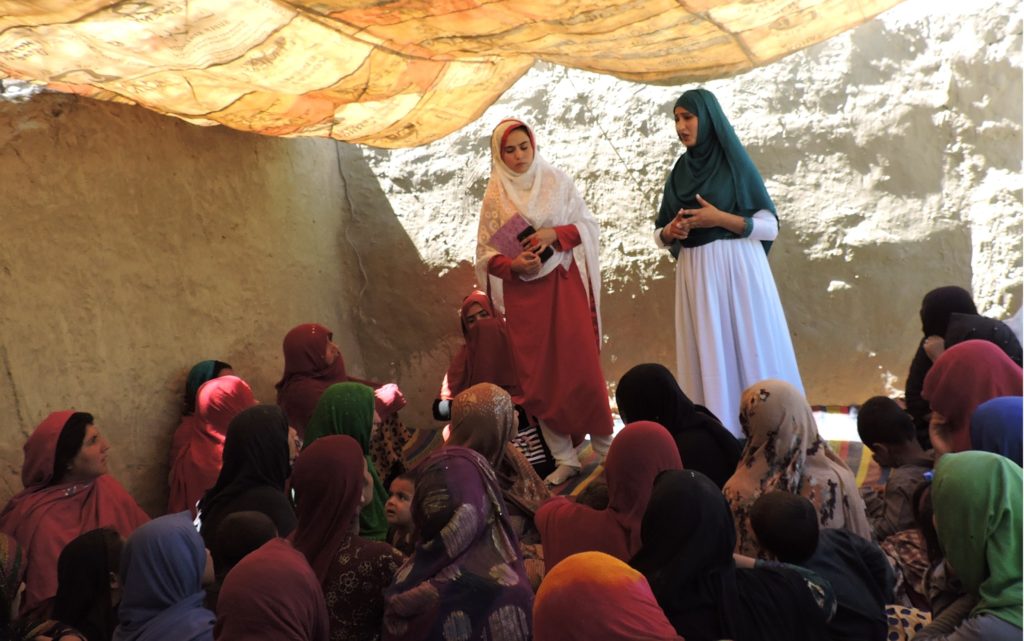Young Leaders in Nangarhar have been campaigning to persuade parents to let their children attend school, with a particular focus on daughters. Enayaturrahman, one of the group, says: “As young members of our community, it is our responsibility to bring about positive change and ensure that our sisters have opportunities for education like those we’ve enjoyed. During meetings and events, we’ve explained to members of the public how important it is to send both their sons and daughters to school. The response has been generally positive.”
Naazia Farooqi, who is also part of the group and is passionate about female literacy, explains: “It is a matter of pride for me to encourage girls to get an education. I try to encourage parents to allow their daughters to attend classes, and am overjoyed when I see young girls on their way to school in my neighbourhood, as I know that this will enable them to be better-prepared for their future lives”.
The group of Young leaders in Nangarhar organize programs for various communities in Jalalabad and elsewhere to discuss the opportunities that a proper education for all of their children represents. They are aware of how this can contribute to a reduction in domestic violence, among the many challenges that families face.
Young leader Wafa Shinwari says: “I’d like to do more at grass-roots level to encourage the education of all children, girls and boys. I’m pleased that Ipso has given me an opportunity to work in the social and cultural container in Jalalabad to contribute to the development of our community.”
As the group in Nangarhar complete their community projects, they reflect on the contribution they’ve made to community development, and particularly the issue of literacy and reduction of domestic violence. Yasmin Yaqoubi explains: “For a healthy society, mothers and fathers should be encouraged to ensure that their children receive an education, so that they can serve their community in the future.”
Young Leader Faraidoon Hamdard, who is reaching out to children in his neighbourhood, says: “Many children are compelled to work rather than attend school, because they need to contribute to the household. I work with their families to find ways of getting them to go to school by providing them with the books and stationery that they need to learn. I am myself from a poor family but had the opportunity to study and am now able to provide for my family, thanks to the education I received. I ask members of the public to donate a pen or a notebook so that children will be able to go to school”.
“An illiterate member of a community can harm society, while a literate citizen is more likely to contribute to development” explains Abdul Ghafar from Nangarhar.
Enayaturrahman has launched a campaign to collect school textbooks from families who no longer need them, and to distribute them to young people who cannot afford to buy them. He says: “The cost of school books and stationery is a major obstacle for many families, so we realized that many households have books they no longer use. Luckily, people in the community have been generous and provide us with these materials”.













